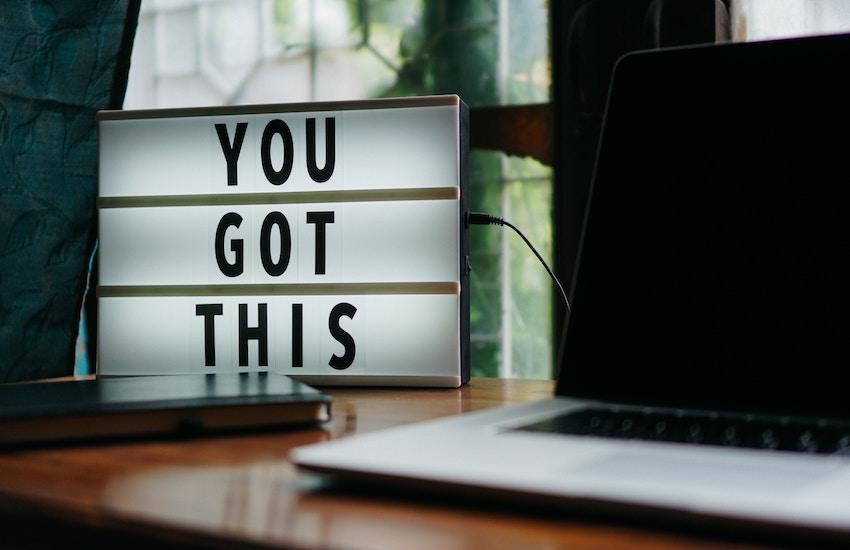How to Prepare for the Three Parts of an Interview
Published: Sep 23, 2019

Whether it’s your first interview of your tenth, an interview is always stressful. After all, an interview usually makes or breaks your chances of getting hired.
Typically, an interview consists of three parts. The first part is the introduction, when interviewers get to know more about you as a person, to see if you’d fit their work environment. The second part consists of a more competency-based and behavioral discussion, when interviewers look to see if you have the skills required to get the job. The last part is when interviewers will ask you if you have any questions about the job or other things that need clarification.
When preparing for an interview, people tend to focus more on the second part, the one that speaks about your competences. But all three parts are equally as important. So to make sure you’re ready for your next interview and to alleviate a lot of that interview stress, here are some tips to help you prepare for all three parts.
1. The “tell me a bit about yourself” part
This is probably one of the most common interview questions and usually comes very early in the interview. While you might think this question is easy and you don’t need to prepare for it, answering this question can be difficult. Many people seem to struggle with picking which aspects of their life to share with the potential employer.
First of all, you need to understand why the interviewer is asking this question. On one hand, it’s a good way to transition into the rest of the interview, but on the other hand, it does exactly what it says. It gives the interviewer a chance to learn more about you.
A simple formula to answering this question is to structure your response into three parts: present, past, and future.
Present: speak a bit about who you are now, what is it that you do in terms of work or study, and perhaps share a recent accomplishment.
Past: speak about how you got to where you are now and how your past experience has prepared you for the job.
Future: share a bit of your future career-based plans and why you think this job will help you achieve that.
The key is to keep the answer as professional as possible without making it sound too stiff. It's okay to share some personal information about yourself, but only if you think it will emphasize how passionate you are about your job.
2. The “behavioral interview” part
This is the part that seems to give people the most problems. To verify the competences and behavior of potential employees, interviewers often use what is called the STAR method. STAR is an acronym that stands for Situation, Task, Action, and Result. Questions that are included in the STAR method are quite easy to recognize, as they usually require you to give real examples about how you handled certain situations. In all your answers, you should aim to include all four concepts of the method.
Situation: describe the context of the challenge you faced.
Task: explain what responsibility you had in that context.
Action: talk about the action you took to solve the situation.
Result: describe the outcome of your action.
Employers use the STAR method for a few reasons: they want to make sure you have the experience you claim to have, they want to understand your way of thinking, and because the method is an effective method to compare candidates.
While there’s no way to know for sure which questions you’ll be asked in the interview, you can still use the STAR method to prepare. Start by thinking about a few examples that demonstrate your skills and success in your past jobs. You want to give enough information to support your story while avoiding unnecessary details. Ideally, you should structure your answer in a way that doesn’t exceed two sentences per letter of the acronym. Don’t give out vague answers such as “I did my best to…” Instead, explain the exact actions you took.
3. The “do you have any questions for me?” part
Near the end of your interview, you’ll often be asked if you have any questions about the job or company. Although you don’t need to prepare a long list of questions to ask, you need to do some pre-interview research and pick a few things you’d like to talk about. Ideally, you should focus on open questions, such as:
What do you expect from the employee during the first two months?
Where’s the company heading to in the next five years?
What would you say are some of the challenges that this department is facing at the moment?
What do you like best about your job/this company?
What is the culture like at the company?
What opportunities for professional development do you offer?
Most important, remember that you should never, ever leave the interview without asking at least two questions. When you ask questions, it shows your interviewer that you did your homework and are interested in the position. If you don't ask any questions, it will send the message that don’t care if you get the position or not.
Stephen Marshall is a Director of Be Basic CEO with extensive experience in marketing and financial services in Meridian, Idaho. His work has been featured and mentioned in a wide range of publications, including Tweak Your Biz, Mobile Business Insights, Social Nomics, Small Biz Club, Energy Central, Dzone, Biz Community, Blog Her, and more.
